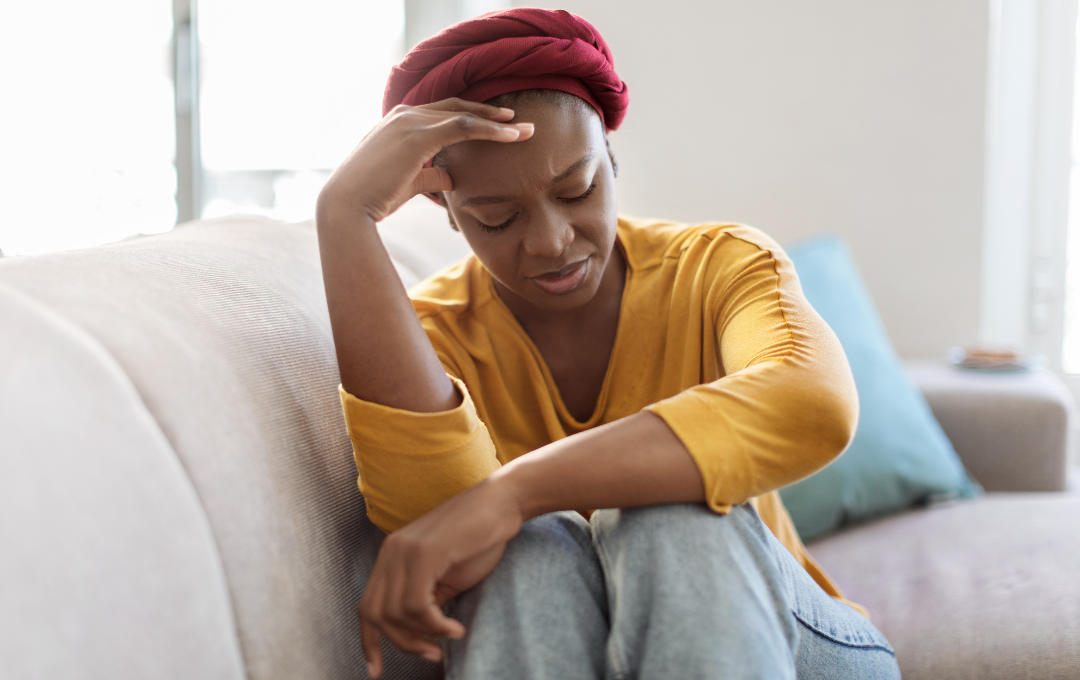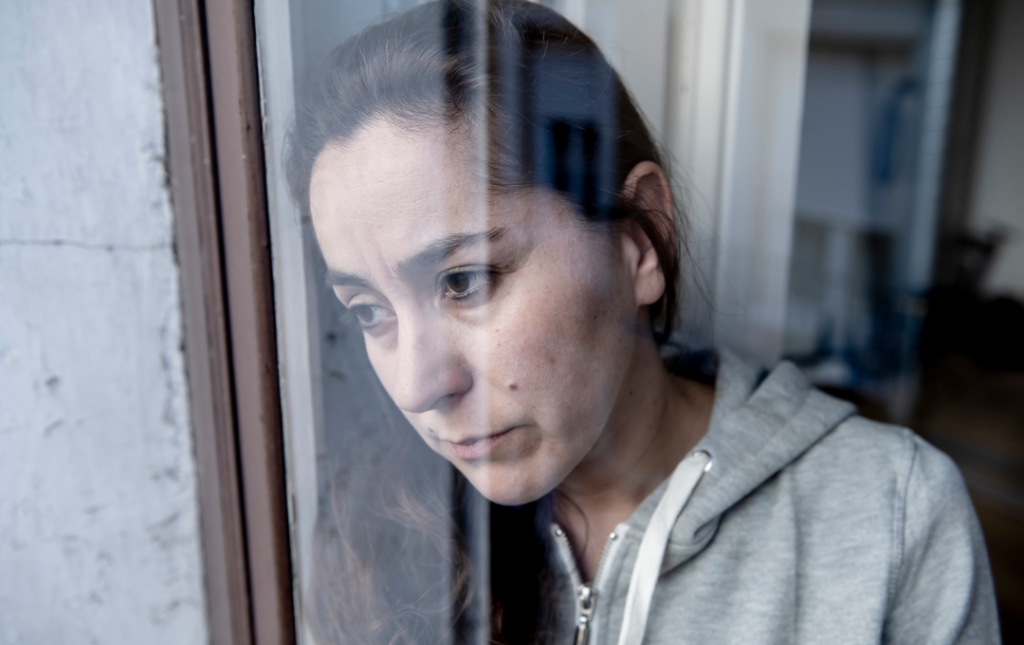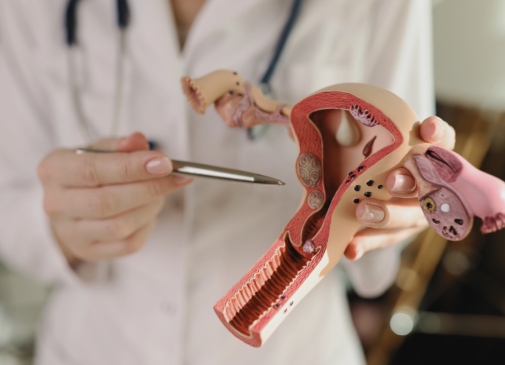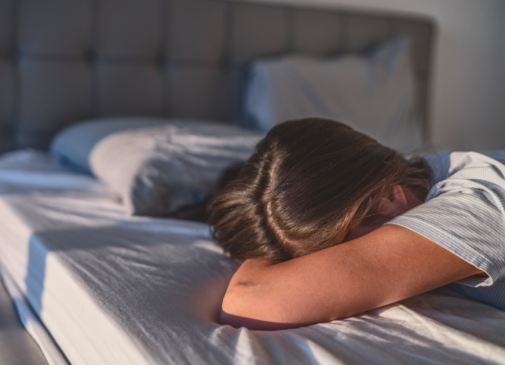
Have you ever considered the emotional toll of fibroids and how they affect mental health? Uterine fibroids, also known as leiomyomas, are noncancerous tumors made of muscle and connective tissue that grow in or on the uterus. Beyond pain and discomfort, fibroids can significantly influence mental health. Emotional, psychological, and social well-being can all be impacted by the painful and disruptive symptoms of fibroids.
Symptoms of Depression from Fibroids
Chronic conditions like fibroids don’t just affect the body, they can lead to fibroid-related depressions, anxiety, and stress. The emotional impact of fibroids is often overlooked but some individuals may experience symptoms of depression such as persistent sadness, loss of interest in activities, changes in sleep or appetite, difficulty concentrating, fatigue, or feelings of hopelessness.
These emotional challenges can stem from the stress of fibroids, including pain, heavy bleeding, body changes, or fertility concerns. While everyone’s experience is different, it’s important to recognize these signs and seek support —whether through loved ones, peer communities, or patient advocacy spaces—to help navigate the emotional impact of fibroids. Connecting with others who understand what you’re going through can help reduce isolation and make it easier to cope.

How Fibroids Affect Emotions and Mental Health
A recent study published in the National Library of Medicine found that women with fibroids identified they had lower quality of life before treatment, indicating reduced social interaction due to fibroid-related emotional distress. Participants reported concerns including bodily discomfort, mental health struggles, limitations in social life, and decreased satisfaction with sexual relationships.
“There is an embarrassment factor,” says Eugenia Buie, a member of our Fibroid Fighters’ advocacy community, describing her personal experience with the emotional toll of fibroids. “I didn’t want to talk about it. You can’t go to certain places or keep commitments that you’ve made. You’re so tired because your cycle is so heavy. You are anxious that you will have an accident. It wears on you mentally; it wears on you emotionally.”
Fibroid symptoms can differ from person to person, but many women who experience severe symptoms also deal with the emotional side effects of fibroids, including anxiety, fatigue, and self-esteem issues.
Common Fibroid Symptoms:
- Heavy and prolonged menstrual bleeding
- Anemia and fatigue
- Pain during intercourse
- Frequent urination
- Constipation or bloating
- Pelvic or lower back pain
- Increased menstrual cramping
- Stomach swelling
If any of these symptoms feel familiar, or you’re unsure whether fibroids might be behind what you’re experiencing, take the quiz to learn more and see if you could be affected.
Stress and Anxiety Caused by Fibroids

According to the National Institute of Health, fibroids can lead to significant emotional challenges. Many women experience stress from fibroids, anxiety, anger, and depression. Half of the study’s participants felt powerless in managing their condition. Many shared feelings of low self-esteem and concerns about physical appearance, which affected relationships and overall quality of life.
Emotional reactions to fibroids can include feelings of fear, anxiety, anger, and sadness. Some individuals have reported a sense of powerlessness, low self-esteem, and concern over physical appearance which are factors that may impact their relationships and overall emotional well-being.
Fibroids can create fear about the future and contribute to long-term emotional distress. This fear, along with anxiety about fertility and surgery, emphasizes the mental health effects of fibroids. For some, the fear of losing their uterus and the ability to have children adds another emotional burden.
Unfortunately, fear can also delay diagnosis. Many women believe their symptoms are just part of being a woman and don’t realize something more serious may be going on. Even after receiving a fibroid diagnosis, women wait more than three years to seek treatment for their symptoms.
Managing Emotional Impact of Fibroids
While managing the physical symptoms of fibroids is crucial, it’s equally important to recognize the emotional toll of fibroids. Many women find that seeking support, practicing self-care, and exploring various treatment options, they can ease the emotional strain of living with fibroids.
A study highlighted in Endovascular Today found that after undergoing uterine artery embolization (UAE), patients experienced improvements in mood, daily activity levels, energy, and even sexual wellness- underscoring the benefits of treatment options that support both physical relief and emotional recovery.
Many women experience the emotional effects of fibroids but feel too ashamed or afraid to talk about it. Fibroid Fighters is a community to build, uplift and empower women living with fibroids. Whether you are just starting to explore your symptoms or already navigating treatment options, our goal is to connect you with information, resources and stories of fibroid experiences.
Sources:
- Go VAA et al., “A Systematic Review of the Psychosocial Impact of Fibroids Before and After Treatment,” National Library of Medicine.
- Ghant, M. S. et al., “Beyond the Physical: A Qualitative Assessment of the Burden of Symptomatic Uterine Fibroids on Women’s Emotional and Psychosocial Health,” The National Institute of Health.







